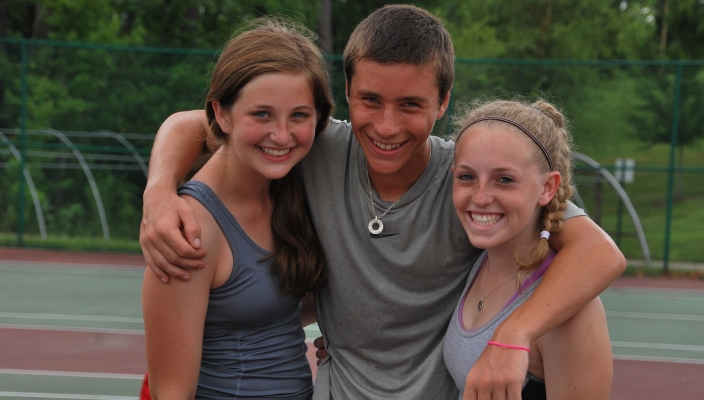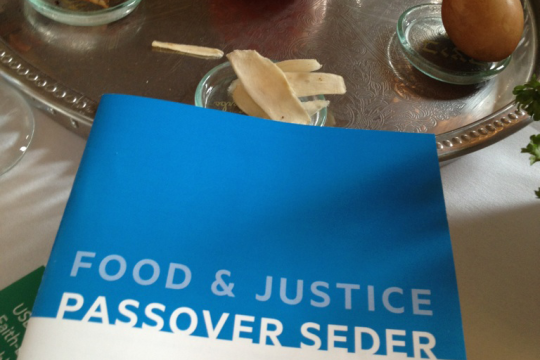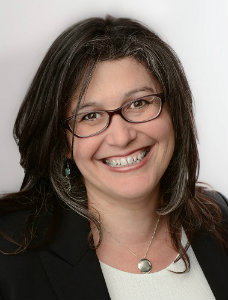
Several weeks ago, I had the honor to learn with teen leaders from two of our NFTY regions. I asked them to share with me their truths – the things they have learned about themselves and the world, that are central to the way they live. Truths can be found in questions like: What do you stand for? What do you value? What are your boundaries? Who are you aspiring to become?
As the teens shared with me what they believed, I was struck by the depth of their views and the sophistication with which they spoke. It dawned on me that this is what holy community is – a place where your truths are nurtured, celebrated and shared.
We know that camp does an amazing job of building this community – this holy place where our participants can share and celebrate their truths. Congregational professionals often share with me that one of the most gratifying aspects of their work is talking to kids about camp and helping them find their “summer home.”
Service Corps, a program started by the URJ two years ago that is generously supported by an anonymous donor, brings camp staff to congregations for four to five hours a week in the months of September to June. Staff members create informal, camp-like programming, and essentially – connect camp to the congregation and the congregation to camp. They create the “backdrop” and cultivate the relationships to have meaningful conversations with kids and parents about camp. Our Service Corps Fellows have used lots of great programs and strategies – many of which are outlined in our Service Corps Idea Book. I wanted to share with you four ways to engage kids about camp that have been especially successful, so that you may use them as ideas for your own congregation:
- Camp Vacation Days – an idea that came to us from Seth Marion at Larchmont Temple in Larchmont, N.Y. Realizing many schools have half days during the year that parents aren’t sure what to do with, the congregation created “Camp LT” – an afternoon “taste of camp.” Kids enjoyed lunch together and activities like URJ 6 Points Sci-Tech experimenting, team building field games from URJ Eisner and Crane Lake Camps, ga-ga, and camp crafts. During the program, Seth was able to talk to the kids about camp, Sci-Tech, and finding their people in a summer community.
- Camp Shabbat – Many congregations seek to host a camp-style Shabbat for families. Partnered with congregational leadership, our Service Corps Fellows decorated halls with vintage camp t-shirts, served camp desserts like smores and ice cream, and engaged kids to share camp stories during services. They led Israeli dance, did tye-dying during oneg and handed out camp flyers and gear to families. The Fellows recruited “parent ambassadors” who spread the word and invited more people.
- Camp Play Areas – When we think about camp recruitment, we may think of starting with our second and third graders. However, it may be helpful to get camp on the radar earlier. Sarina Lapin at Congregation B’nai Shalom in Westborough, MA, helped create a camp pre-school play area, complete with clipboards, photos, camp T-shirts, camp music, craft supplies, and books about sleepaway camp. It served as a great starting point for talking to young families about camp and the future impact it can have on their children and family.
- Wear Your Camp Shirt – Our Service Corps Fellows, along with the professional staff at their congregations, have been wearing their camp t-shirts a lot more. Whether at experiential education programs, family picnics, or sukkah parties, they have found that the t-shirt can be a great conversation starter with families who are thinking about camp, but aren’t sure where to start. And to take it a step further – bring some extras to hand out to your kids!
Michelle Shapiro Abraham is the Director of Program Development for URJ Youth. Michelle received her Masters in Jewish Education from the HUC Los Angeles and has since worked as a synagogue educator, consultant, mentor, author and speaker. She is the author of the URJ CHAI Family Education curriculum, the new CCAR Press Mishkan T’fillah for Children, as well as numerous other curricula and children’s books. In addition to her other consulting work, Michelle currently serves as the Senior Program Manager for URJ Camping and is on the Clinical Faculty of the HUC Executive Master’s in Jewish Education Program.
Related Posts

Passover 2024: The Three Central Messages of Pesach

Modern-Day Plagues of Injustice and Inequality

